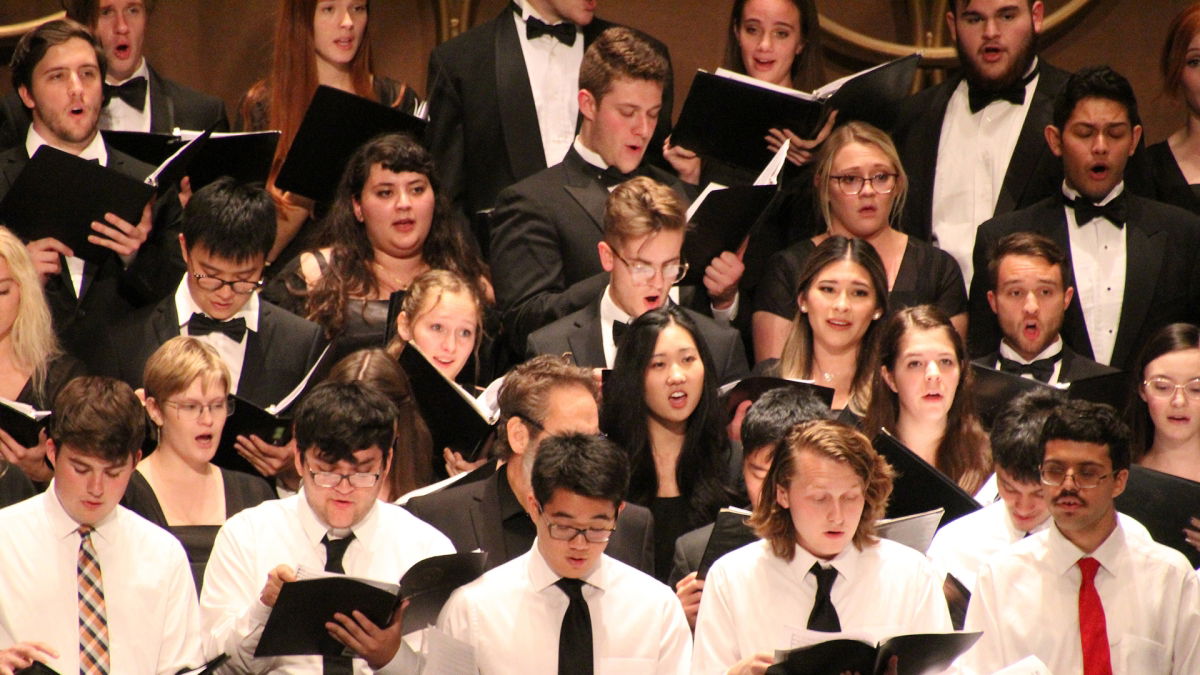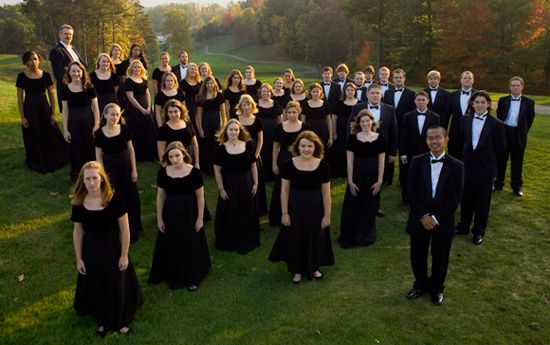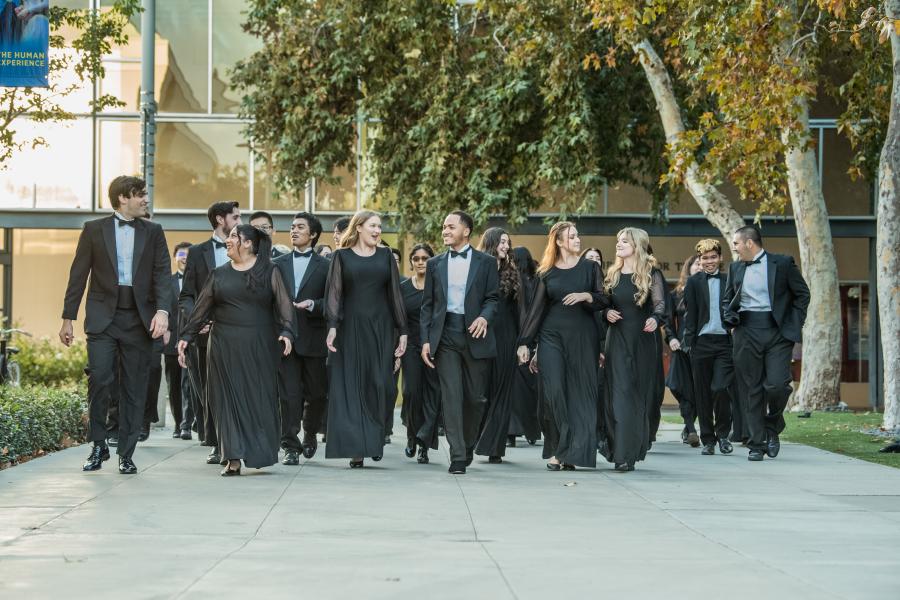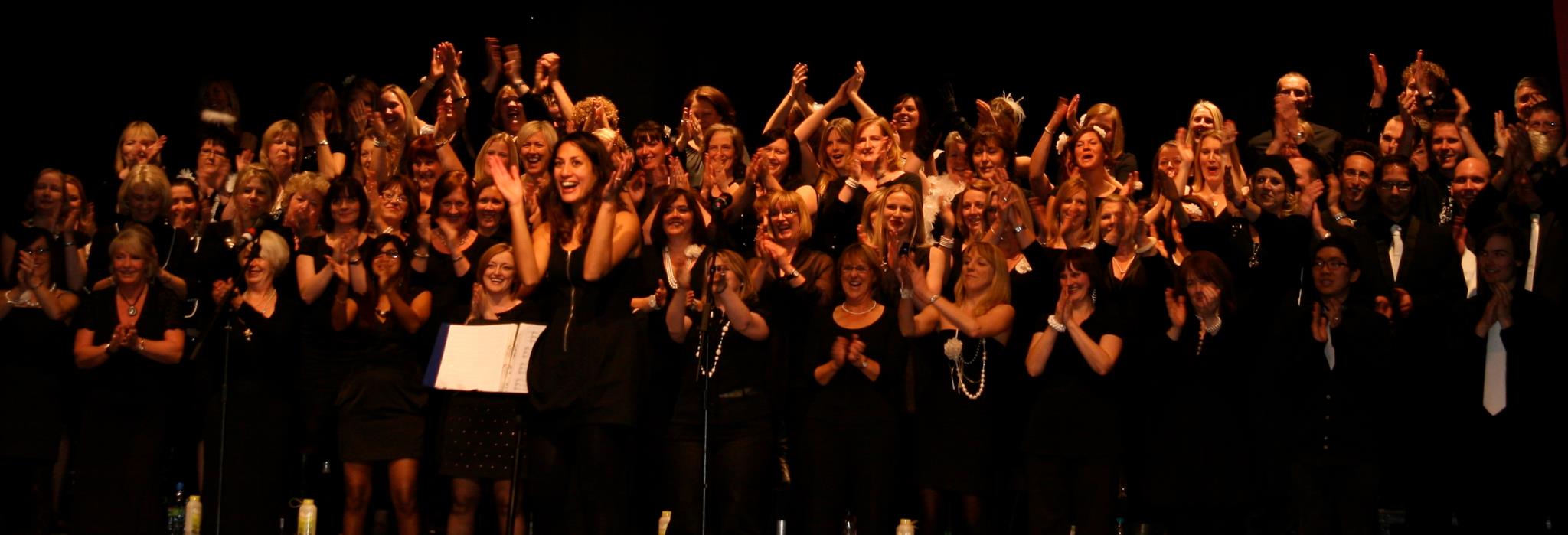A Choral Group Needs to Sing New Music

Before we start, just to be clear, a school chorus can be high school age students in a public, private or homeschool group. This article even applies to community choruses as well.
Music has the remarkable ability to touch our hearts, uplift our spirits, and bring people together. In the context of a high school chorus or other choral ensemble, the experience of singing new music goes beyond mere entertainment; it can foster growth, creativity, and a sense of community among its members. As we explore the benefits of singing new music in a choir or chorus, we'll discover how this practice not only enriches musical abilities but also nurtures personal development.
- New Music Is Fresh
Besides all of the more academic reasons that this article will explore, sometimes having something new to sing offers a breath of fresh air. Each ensemble will always have its favorite pieces to sing, whether because it’s sentimental (maybe associated with a favorite former teacher, a special event, or a student lost too soon), a great song, or it’s just plain fun. But, often, a new song can generate a better positive outlook and energy than was there before.
The new music may have some elements that aren’t in the current repertoire. This leads us to the next reason that a choral group needs to learn new music. - Promotes Musical Versatility
Introducing new music to a chorus’s repertoire exposes its members to a variety of musical genres, styles, and eras. While traditional pieces hold their charm, incorporating contemporary and unfamiliar songs challenges singers to adapt to different rhythms, melodies, and vocal techniques. This process cultivates musical versatility, enabling the singers to confidently explore a broader range of musical expressions. As they navigate diverse compositions, they enhance their ability to interpret and perform a wide spectrum of music—a skill that will serve them well in future musical endeavors.
Some new compositions may include odd harmonies, whether incredibly close or very open, having the sound of a Gregorian chant. They may have complex meters or constantly changing meters. They may have different languages all in the same song. No one singing such new music can ever complain about being bored.

- Fosters Creativity and Expression
When choral members engage with such varieties in new compositions, they're exposed to fresh ideas that inspire creativity and encourage self-expression. Singing new music allows the singers to connect with the emotions and stories conveyed not only by contemporary composers, but by some lesser known composers of earlier eras. This enables them to infuse their performances with genuine feeling and passion, foster a deeper connection to the music, and help singers develop their unique vocal and interpretive styles.
Even the music itself, without the lyrics, can portray a wide variety of emotions. Music has been called the international language because of the way that it often needs no words to make its point.
A wonderful experience for members of a choral ensemble is to be able to have the composer come to explain the origin and meaning of the song, perhaps sharing some secrets about it. He or she may also be able to do the first rehearsals so that any nuances that were difficult to write out can be done correctly. The composer at Salt Cellar Creations is willing to do that. Please contact him through this Contact Us link. - Helps Develop Listening and Analysis Skills
Some musicians, of any skill level, will lock themselves into a certain restricting set of music “rules” that they have either created themselves or heard from someone else whom they consider to be somehow knowledgeable about music. One of these constrained set of rules states that any chord in a song must be part of the key signature; that is, there can be no accidentals or such things as modal insertions in a song.
Analyzing and performing new music requires members of a choral ensemble to engage in critical listening. In doing so, they will discover that any constricting set of rules to which they may hold are, indeed, limiting and putting a needless “lid” on the music they have considered legitimate. In discovering all of the possible facets in new music, the singers must discern intricate melodies, harmonies, and rhythms, enhancing their ability to dissect and understand complex musical arrangements. As singers decipher the nuances of new compositions, they develop a more refined musical ear, enabling them to appreciate and analyze music at a deeper level. This skill not only contributes to their growth as musicians but also enriches their overall musical experience.
This listening process also provides for an opening to learn some music theory about forms, meters, chords and other unfamiliar components of the music. Sometimes, even familiar elements of music can be used in new and creative ways. Discovering and understanding this concept can reinforce the creative character of God.

- Builds Flexibility
Singing new music presents challenges that can build resilience and adaptability in the members of a choral group. Learning unfamiliar melodies or intricate vocal parts demands patience, persistence, and a willingness to embrace the unknown. Overcoming these challenges instills a sense of accomplishment and boosts students' confidence in their musical abilities. As they navigate the process of mastering new pieces, they develop important life skills that extend beyond the realm of music, preparing them to tackle challenges with resilience and adaptability.
Many students, and people in general, desire immediate gratification. They want to be able to do or have what they want right away. Learning new music is a great lesson in patience and delayed satisfaction. They can also learn about the construction process that music demands as each part is carefully added to the one before.

- Strengthens Teamwork and Cooperation
A choral ensemble is not just a collection of individual voices; it's a collaborative ensemble that requires teamwork and cohesion. Singing new music provides an opportunity for students to work closely together as they learn, practice, and perfect intricate vocal harmonies and arrangements. Collaborating on new pieces fosters a sense of unity among chorus members, teaching them the value of listening, blending their voices, and supporting one another. These lessons in teamwork and collaboration extend beyond the rehearsal room, benefiting students in their academic and personal lives.
During this process, the section leaders will usually rise to the occasion, providing leadership and team building as they help the others learn their new parts. For educators, this may be a time to evaluate the capabilities of those section leaders to determine if they are adequate for the job.
It also allows the section leaders to demonstrate their leadership skills. They may need to do a bit of homework on their own so that they can effectively lead their section when singing the new music. For some pointers on how to best choose section leaders for your choral ensemble, read the SCC article entitled How to Select Section leaders for Your Choral Group.

- Can Add to Expressions of Faith
For students with a Christian worldview, singing new music can hold a special significance. It's an opportunity to connect their faith and values with their musical experiences. Many contemporary compositions address themes of hope, love, compassion, and the human spirit—themes that align with Christian teachings. Through these compositions, choral ensemble members can express their beliefs, share messages of inspiration, and engage with music that resonates with their faith.
Some of the absolute best music in history has been created in and for the Christian church, and many of these are sung even by agnostics and so-called atheists because of their intrinsic beauty and power.
There is a saying, “The devil isn’t always wrong”, meaning that truth is truth. Often, the devil misuses the truth for his own purposes, but many songwriters will present the truth undisguised and pure. The song by James Taylor called Shower the People is one good example. You can see the Salt Cellar arrangement of the song HERE. Showing appropriate love is a Biblical command, whether Christian or Jew. Salt Cellar also has a small but growing selection of Christmas arrangements that are faith-based. Take a minute to look and listen to these:
> Feliz Navidad, a unique, multi-voiced approach to a favorite Christmas song.
> Silent Night (Song of Light), a shimmering, ethereal arrangement of the classic Christmas carol.
> Good King Wenceslas (The Mini Opera), a fun arrangement that has been done as a “Mini Opera”, with simple stage directions.
> Celebrate Jesus, Celebrate Life, an original piece offering an energetic celebration of Christmas
- Nurtures a Lifelong Love of Music
Exposing choral singers to new music helps cultivate a lifelong appreciation for the art form. By regularly introducing them to fresh and engaging compositions, educators can instill a curiosity and passion for music that extends well beyond their school years. This love for music can lead students to continue exploring and participating in musical activities, whether as part of a choir, a community ensemble, or even as individual performers.
Sometimes this love for music doesn’t even need to be as part of an organized group due to a true lack of opportunity or time. But, anyone who has belonged to a music ensemble, whether Chorus, Band or Orchestra, will listen to music with much more understanding and feeling.
And, if some of the former choral members want to start a group of some sort, from rock to jazz, from wedding to praise and worship, the music that they perform will undoubtedly have more quality to it and the performances will be more solid than those who start “from scratch”.
- IT’S FUN!
Singing is fun, and for those who put the extra effort into singing new music in a Choral Group, it’s even more fun. Beyond the simple joy of singing in a group, where the Gestalt is strong, lie the concert experiences, and possibilities of singing in places other than the usual, such as for grand openings and other public events.
In conclusion, there are a number of great reasons for singing new music in a choral ensemble are vast and multifaceted. From cultivating musical versatility and fostering creativity to building resilience and promoting teamwork, the experience of engaging with contemporary compositions enriches students' lives in numerous ways. The opportunity students to connect their faith with their musical journey adds an extra layer of meaning to the experience. As educators and choral directors continue to prioritize the inclusion of new music in their repertoires, they nurture not only musical talent but also personal growth, creativity, and a lifelong love for the transformative power of music.
Salt Cellar Creations understands the beauty and power that a Choral Group can convey and the challenge that choral teachers and directors face in choosing the best music for their ensemble. SCC has a growing library of original works and arrangements to help meet your needs. Find out more about what Salt Cellar Creations has to offer for Choral Ensembles HERE. Explore the available music HERE.
SCC can also compose an original piece for you or do a custom arrangement for you to allow you to showcase your group. There are two ways that this can be done; one is much more affordable than the other. CONTACT US for more information. And SCC is always looking for ideas of pieces to arrange or suggestions for original pieces.
We have written and arranged music for groups not only in the US but also in Canada, the United Kingdom, France, Australia, New Zealand, Austria, and even Kenya. Please CONTACT US to let us know what we can do for you!